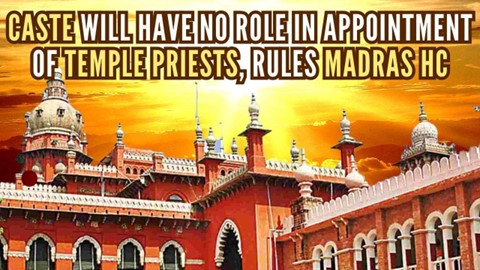PREVIOUS
Madras High Court on appointment of priests
June 29 , 2023
951 days
1407
0
- The Madras High Court made it abundantly clear that pedigree based on caste will have no role to play in the appointment of Archaka (temple priest).
- The only criteria for such appointments would be how well-versed a person is in religious texts and rituals.
- Muthu Subramania Gurukkal had filed a writ petition in 2018.
- This petition challenging a job announcement for the post of Archagar/Sthanigar (temple priest, also known as Archaka) in Sri Sugavaneswarar Swamy Temple, Salem.
- An argument was made that the appointments must follow the specific Agama (scriptures governing temple rituals) principles adhered to by the temple, and that the job advertisement infringed upon the hereditary right of the petitioner and others.
- But the justice Venkatesh cited the Supreme Court’s verdict in the 2016 All India Adi Saiva Sivachariargal Seva Sangam’s versus Government of Tamil Nadu case.
- The top court had held that the appointment of a temple priest is a secular function and not about a hereditary right.
- The top court had held that the religious service by an Archaka is the secular part of the religion and the performance of the religious service is an integral part of the religion.
- In the 2022 case of N Adithayan versus Travancore Devaswom Board, the Supreme Court had held that there is no justification to insist that only a Brahmin (in this case, a Malayali Brahmin) alone can perform the rites and rituals.

Leave a Reply
Your Comment is awaiting moderation.


